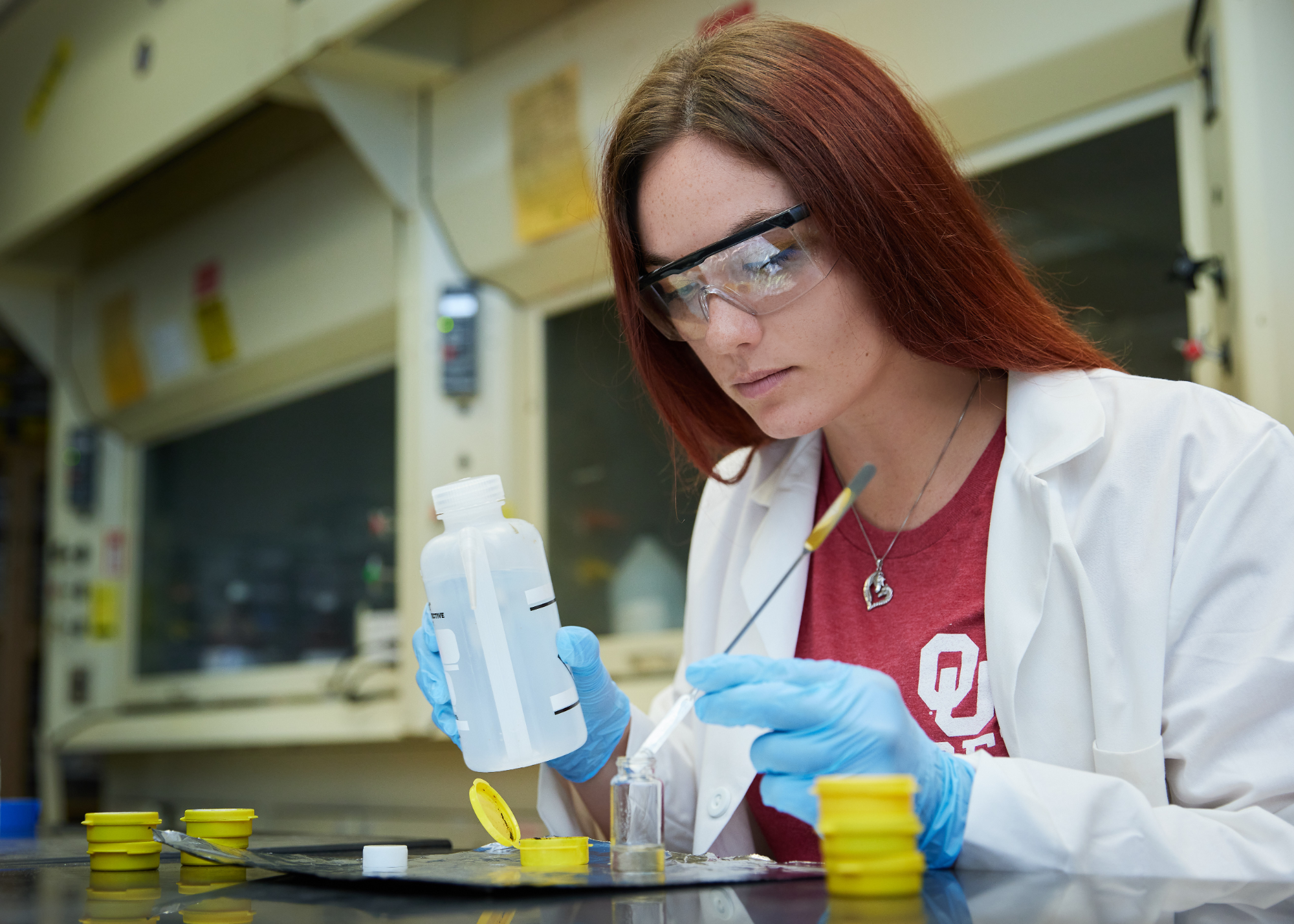Faculty and students at Mewbourne College discover how to innovate solutions to problems that affect us now.
They also learn to prepare for solving tomorrow's problems.
Mewbourne College is committed to engaging interested undergraduate students
in cutting-edge, authentic research. The college prioritizes undergraduate research, allowing our students an opportunity to have hands-on experience early in their college careers.
Students in the School of Geosciences partner with faculty members, in the field and in the lab, to assist with research projects ranging from African lake sediments to analyzing international earthquake data. With the help of departmental research grants, these projects can culminate in a senior thesis and lead to a publication or presentation at a national scientific conference.
Students in the Mewbourne School of Petroleum and Geological Engineering work in teaching and research labs on equipment like a Scanning Electron Microscope, which is virtually unheard of for petroleum engineering undergraduate students. At most universities, this technology is often reserved for graduate students.
Dr. Chandra Rai, a past professor at Mewbourne College, called OU’s petroleum engineering labs, “the envy of universities across the nation.”
Among our many labs is the Integrated Core Characterization Center, which has unparalleled industrial, commercial, and academic capabilities. There you will often find faculty, graduate students and undergraduate students all working on different projects and assignments. The lab offers the widest range of measurement and research opportunities in the industry.

Environmental geology major Bren Cable has been an undergraduate researcher with the School of Geosciences’ Dr. Michael Soreghan since her freshman year. Conducting undergraduate research has provided Bren with incredible experience and taken her all the way to Africa.
“If I could have a superpower, it would be manipulating time. So looking through time by analyzing mud is my own little way of time traveling. My work as an undergraduate researcher began by analyzing grain-sized mud samples collected from a core out of Lake Tanganyika in Tanzania. The lake is a major protein supply for five surrounding countries. In summer 2021, Dr. Soreghan and I traveled to Tanzania and worked on four projects. I collected and chemically analyzed water samples to study how man-made changes on land lead to an increase in sediment washing into Lake Tanganyika. This sediment is destroying fish habits. If left unattended, the lake could stop maintaining a stable ecosystem. This means the surrounding five countries would be hard-pressed for food.”